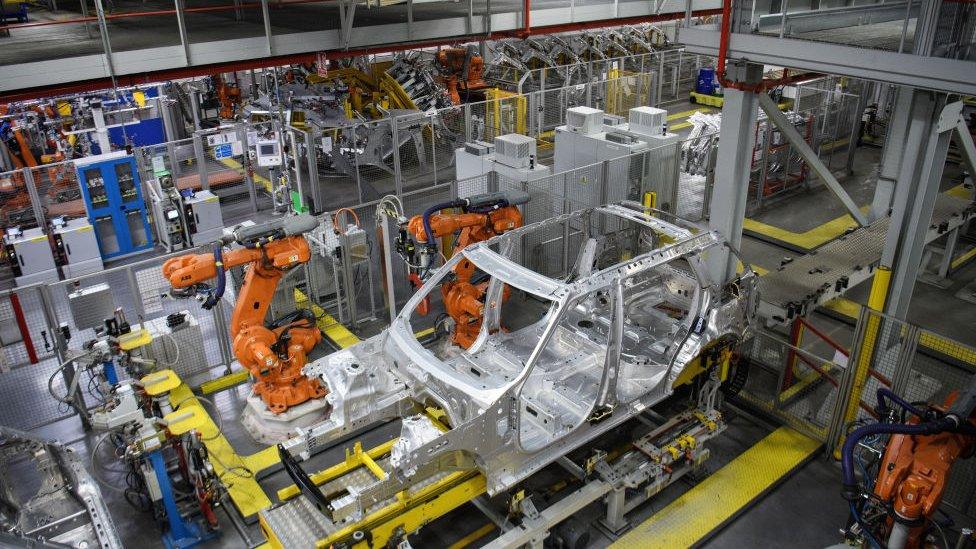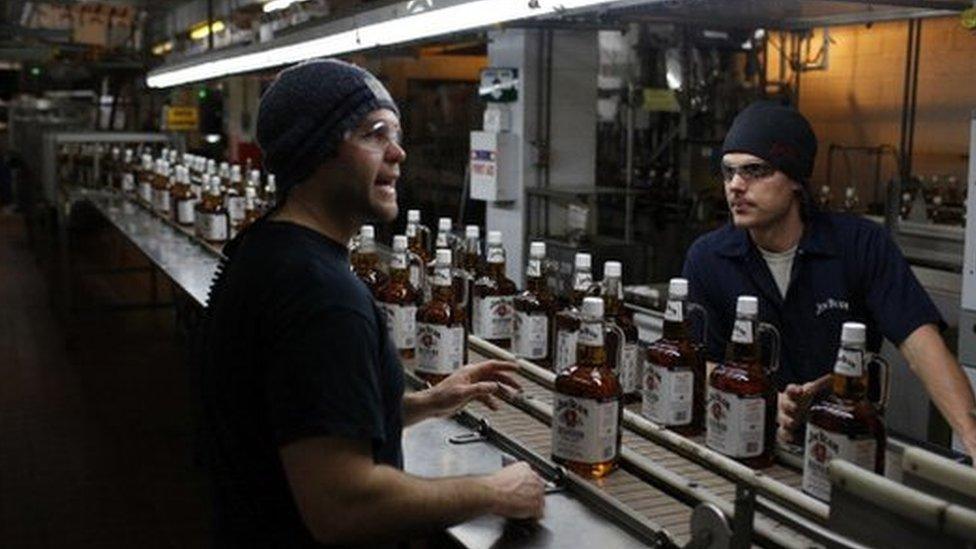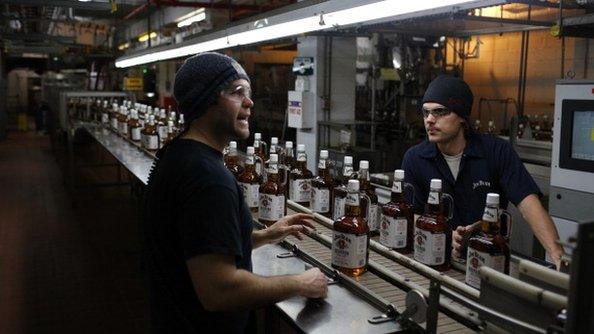Rise of the robots 'could put 230,000 Scottish jobs at risk'
- Published
- comments

Robots which have already transformed car manufacturing are set to move into new sectors
Automation could cost Scotland 230,000 jobs over the next decade, according to a report.
Jobs in Dundee are most at risk from the rise of robot labour, with Edinburgh and Aberdeen better placed to adapt to the changes ahead, it said.
The Cities Outlook report, external is an annual health-check of city economies and this year highlighted the potential impact of automation and globalisation.
It said 1 in 5 posts in Scottish cities could be displaced by 2030.
The rise of the robots could even compound Britain's north-south divide, the report warned.
Centre for Cities produces the annual report, which predicts that 3.6 million jobs in total might be made obsolete by 2030 - with retail occupations, customer service roles and warehouse jobs among those most at threat.
Of the total 230,000 Scottish jobs at risk, this includes 112,700 jobs in Glasgow, 60,800 in Edinburgh, 35,900 in Aberdeen, and 20,000 in Dundee.
Dundee is among the top ten British cities most exposed with Edinburgh and Aberdeen also at risk of job losses.

Retail is an area where automation could take over
Cities Outlook 2018 also examines potential jobs growth in British cities which could result from automation and globalisation over the coming decades:
In all Scottish cities, around 9% of existing jobs are in occupations predicted to grow in future.
The emergence of new industries will create new jobs which do not currently exist - just as the rise of sectors such as the IT industry did over the past century, it said.
In Edinburgh and Aberdeen job losses in some sectors could be offset by an upswing in high-skilled jobs as a result of automation and globalisation.
In both cities, more than a third of the jobs predicted to grow are in high skilled private sector occupations, while 29% and 22% are in low skilled private sector roles in Edinburgh and Aberdeen respectively.

Automation is set to be extended in many industries
In contrast, more than a third of the jobs set to grow in Dundee (35%) are in low skilled private sector occupations.
In Glasgow, the number of low skilled jobs set to grow (27%) is also higher than the number of high skilled jobs (25%).
Commenting on these findings, Andrew Carter, chief executive of Centre for Cities, said: "Automation and globalisation will bring huge opportunities to increase prosperity and jobs, but there is also a real risk that many people in Scottish cities will lose out.
"The time to act is now - national and local leaders need to ensure that people in cities across Scotland can share in the benefits these changes could offer.
"That means reforming the education system to give young people the cognitive and interpersonal skills they need to thrive in the future, and improving school standards, especially in places where jobs are most at risk.
"We also need greater investment in lifelong learning and technical education to help adults adapt to the changing labour market, and better retraining for people who lose their jobs because of these changes.
"It's also increasingly clear that a one-size-fits-all approach from central government is inadequate to address the myriad issues that different places face."
- Published29 November 2017
